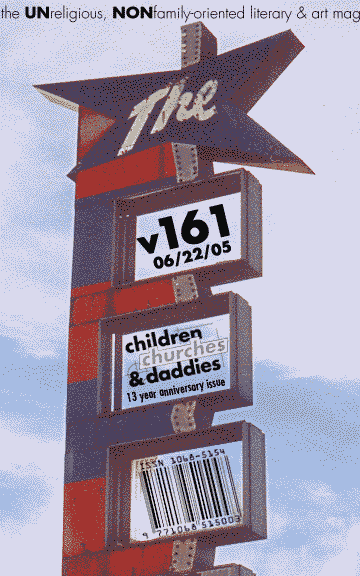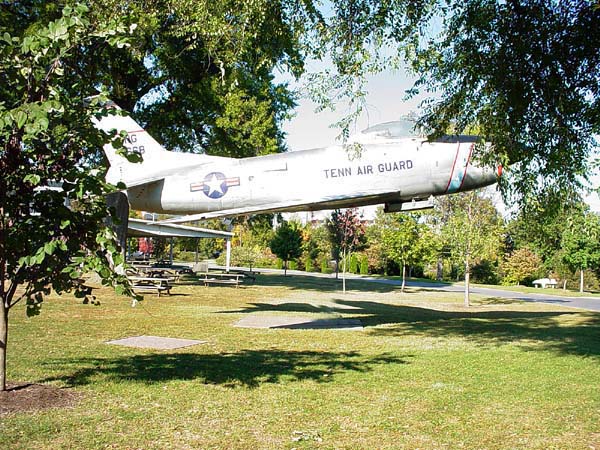
Children, Churches and DaddiesVolume 161, June 22, 2006The Unreligious, Non-Family-Oriented Literary and Art Magazine |
Internet ISSN: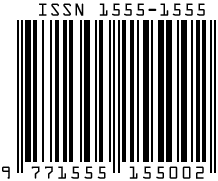
|
Print ISSN: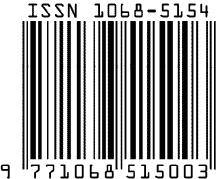 |
Israeli Commentary
Letter to Mad Dog Ganz from C Ra McGuirt
Re: the article you sent on this dude’s take on Zionism, all I know is that:
1) When I used to criticise some of Israel’s polices towards Palestine with Jews while I lived with and as a Jew in Philly, I was told: “A lot of your points are true, and many of us agree with them. We discuss this stuff amongst ourselves, but we don’t wash our dirty laundry in public. Jews get enough bad press & harassment as it is.”
2) All I know about “Israel, Right or Wrong” is that the Israelis, unlike the Palestinians, don’t have signs hanging in their KINDERGARTEN classrooms saying: “You children are the future martyrs of our country”, i.e., “Get ready to go blow yourselves up in order to kill some Jews.”
3) Sign me up as non-Zionist, but an Israel, Right or Wrong-ist. Even Bill Clinton said he would take up a weapon to defend Israel if it came down to it.
4) It drives me NUTS when some people (mostly “liberals”) connsider both Israel and Palestine to be “Heel” States, with the grudging concession that on a sliding scale, Israel rates perhaps 1 or 2 points less on the “Heel State” scale.
5) It drives me even NUTTIER when people (mostly “liberals”) seem to think that Israel just got up one day and decided to invade and occupy the areas they are now pulling out of. Those areas were occupied, and continued to be maintained as buffer zones, because Israel was attacked by EIGHT NATIONS at once, all of which were determined to EXTERMINATE every last Jew. Tiny little Israel, the ONLY democracy in the Middle East, kicked ALL their asses like dogs. That they were a bit testy toward their Arab neighbours thereafter comes as no surprise.
6) Though it has nothing to do with Zionism, Isaac Hayes is one hypocritical motha-shut-yo-mouf for quitting “South Park” due to their “criticism of religions”. He stood idly by as Matt & Jeff tore new assholes in Christianity, Judaism, Islam, & Mormon-ism. We ALL know he quit because they made fun of Scientology. Jeez, bro, I thought Scientolgy WASN’T a religion! Or so The “Church” of Scientology says. I figured Isaac had a better sense of humour and was more of a sport than to get his size XXXL underpants in a bunch over this. I admire the man for his talent, but I no longer respect him as a person. I expected them to get a new voice for Chef, but apparently, they’re going to “do a Kenny” on the mo-fo. On the show, he is to fall off a cliff, be caught on fire, and consumed by wild animals. Fine with me. I just hope the new “school chef” is a Semi-Sane Adult Role Model, regardless of race, creed, sex, religion, or lack of it...
[editor’s note: I heard (only heard) that is was well after the Scientology episode that Issac Hayes complained Ñ but it was very shortly after he attended a 3 day Scientology conference. I don't know if this is 100% true or not, but it looks like he'd deal with whatever South Park decided to make fun of, until he went to a Scientology conference and other Scientologists pointed out how “heinous” making fun of scientologists was...]
7) I would make a bad President. Bush is currently kissing the Chinese President’s ass on TV. I would tell the dude, live on TV, with no bleeping: “You guys are Nazi Robber Baron F#&ks. We will NOT maintain ANY diplomacy with you, we will NOT trade with you, and we will NOT send our athletes to your Olympics, considering you’ve torn down the houses of thousands of citizens to “get ready” for this event, and then clapped in jail those who dared to complain when they were left with a bridge for a roof. I don’t CARE what it costs us financially. No, we don’t want war, we just want NOTHING TO DO WITH YOU until you improve your human rights record. Now get the HELL off my lawn, c&$ksucker!”
Wow, that felt good, lol.
I don’t believe that Israel is beyond criticism, any more than my native country is beyond criticism. I have caught plenty of crap for saying so, too, from the Hardcore Pro-Israel contingent. They don’t want to hear ANY criticism of Israel no matter what; to me, that’s the Zionist outlook.
When I say “Israel, right or wrong”, I mean “even if they f**k up at times, they don’t deserve to be driven into the ocean or nuked by Iran or otherwise genocided out of existence.” I feel about Israel a lot like I feel about the States: an imperfect society, but one with a chance to improve. When I say “Israel, right or wrong”, I mean “Whether they are right or wrong in a certain instance, they deserve to EXIST as a nation.” There are a lot of folks out there who feel that Israel should plain be wiped off the map, such as the charming president of Iran.
To this, like Clinton, I say “Nay”. And, like Clinton, who is hardly a Neo-Con Militarist, I say one of the very few reasons I would pick up a gun and fight in a war would be to help keep Israel alive as a nation.
It’s extremely ironic to me that the Right used to be the ones who were anti-Israel. Now it’s the Left. I have seen Leftist friends watch TV and tell me how slanted the Media is towards Israel, and I have heard my Jewish almost-mother-in-law in Philly say that the Media is slanted toward the Palestinians. Sigh... Which one is right?
Both views have their truths and their inconsistencies. On the other hand, are there any Arab Democracies, and, if so, do they have any Jews sitting in their Parliaments? The Israelis have Arabs in theirs...
Then again, I have heard first-hand accounts of Jewish soldiers beating Arabs with rifle butts for being “uppity”, or for no reason at all. I’m certain that it’s true, and it pisses me off, just like it pisses me off that Bull Connors turned police dogs on little black kids in the 60s. To my shame, this happened In MY country, on the Southern soil of my birthland. But right or wrong, I don’t feel that my nation, or any other, should be wiped off the map, and all its people driven into the sea, for the sins of the extremists among its inhabitants. I include jerk-o countries like North “Ko-ree-er”, “Chiner”, Iran, Sudan, Kuwait (where women still don’t have the vote despite the US “liberating” it), and [insert hideous, dictator-controlled, let-the-people-starve-so-I-can-have-a-huge-army country of your choice here].
I call America MY country because of an accident of birth, but though it has comm-itted, and continues to commit, atrocities, it’s still MY country. For the moment, at least. If some major changes are not made in the next three years, that might change. You have to live in Canada for three years in order to become a resident; you can then apply for citizenship. Interesting serendipity, ain’t it? I will have my choice to make, re giving up my American citizenship, just about the time the next US Prez is elected. If it’s someone who will continue the Bush Agenda, I’m out of here.
My POV is this: Israel has a right to exist. I would (if I could), were Israel once again the object of a cowardly 8-on-1 attack, pickup a rifle and be in the trenches next to Bill Clinton. That is, of course, in the event of a conventional war. If Iran gets the nuke, and the missiles start flying back and forth like lawn darts, I believe I will just stay in Grande Prairie...
Of course, this “taking up arms for Israel” is just a fantasy on my part, given the logistics. It’s kind of like my fantasy of going from school to school where corporal punishment is still practised, kicking the Principal in the nuts, and stomping his hands until he can PERMANENTLY no longer lift a paddle to beat someone. (I wonder how many I could put out of commission before “they” got me?) I’m sure my AA Sponsor would say these “Crusader Rabbit” visions of mine are Alcoholic Thinking (though I am presently sober), and ultimately ego-based. He is probably right.
• I don’t pretend to be objective about my partisan attitude towards Judaism. I am not a Jew, because my mother wasn’t a Jew, and I didn’t convert. I do, however, wear the chai, have a mezzuzah on my doorframe, and consider myself a Friend of the Tribe. I suppose this also makes me a Friend of Israel by default.
I wouldn’t stand by and let a member of my Personal Tribe (which includes you, self-proclaimed Militant Conservatives, Hardcore Liberals, Moderate Leftists, Libertarians, and many others of various political & spiritual outlooks, be attacked by a gang of thugs without jumping in, despite the fact that I’m no Bruce Lee and never was. The various personal shortcomings and sins of my Tribe-members would not enter my thoughts; I would act. Judaism is my adopted Cultural Tribe. If what I precieve as an unfair attack (verbal or physical) affects a Jew, or Jews, here or in Israel, I will act, even if it’s only verbally.
• What’s with “Feminism”? I still can’t understand why all Feminists just don’t become Humanists; Humanism promotes respect of, and personal rights for, every single living sentient being, regardless of whether they possess penises or vaginas, and no matter their sexual orientation. I have asked many Feminists “Why not go Humanist?”, and I have yet to recieve a satisfactory response. I suppose one could make the point that the Feminists have a better-organised political movement than the Humanists, and have actually accomplished more than the Humanists...
![]()
poetry
the passionate stuff

![]()
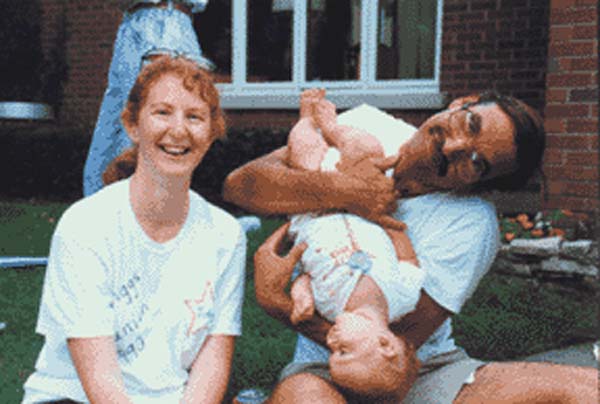
baby obsesso
KC Wilder
baby obsesso — voluminous mouthfulls,
parting felliniesque tweety-bird lips
baby obsesso — vaudevillian reptile,
roped-in parents dote on pathetic
baby obsesso — a blowhorn,
nobody sleeps within 15 miles of
baby obsesso — well on his way
to wiggle his winkie and be a strange person

![]()
Sermon on the Mount (as practiced by certain people):
Twenty-First Century Edition
Michael Ceraolo
Blessed are the poor,
for theirs makes possible our fiefdom on earth
Blessed are those
who are killed so that we may remain comfortable
Blessed are the meek,
for without their contributions to our tax-exempt foundations
our lifestyles would be far less lavish
Blessed are we
who hunger and thirst with covetousness,
for we have the means to satisfy our cravings
Blessed are the merciless
who can call for assassination of foreign leaders with impunity
Blessed are the hard in heart,
for they shall obtain more of God's creation
Blessed are the warmakers,
for they can play God with the life of the world
Blessed are we
who feel persecuted even in our kingdom on earth
And Blessed are
when men revile us and persecute us
and utter all kinds of evil against us
on account of any of the above,
![]() for
for
we rejoice and are glad that our reward is great on earth
![]()
Memory Of The Old Lady
When Days Were Younger
Frank Anthony
We replacing the blood
with a salt water drip
in the old ladies vein
while morphine sedated
The dignified behavior
of old folks traveling
to that land of dreams
her date with Morpheus
Cannot patch that roof
To keep in US reigning
of a red staff of life
Gone to live with Gods
Away in Ancient Greece
![]()
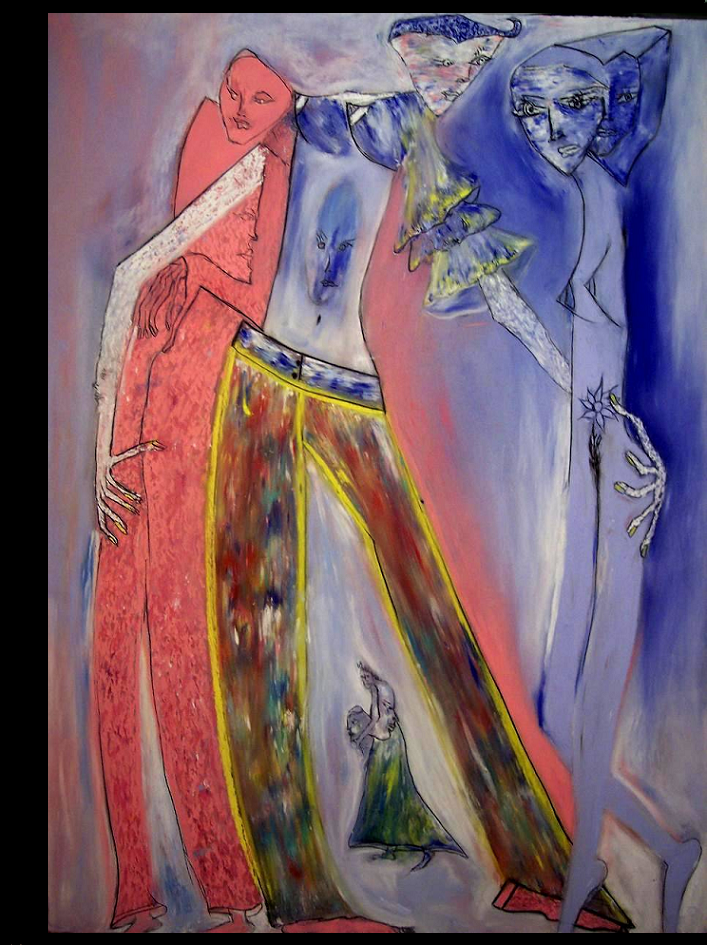
Weird But Still beautiful, art by Adriana De Castro
Proletariat Soundtrack
Wayne Mason
Ringing in my ears
a lone witness
to the voices
in my head
Walking through cells
of grunting machines
this hum and pop
is everything
The clanking steel
beep ding and ching
of money drowning
sounds of labor
Wake up America
and listen to
the soundtrack
of capitalism
With windows down
let it soak
in your ears
and stagnate
Past the vast
industrial ghettos
on your way
to slick neon malls
![]()
Don’t Be Caught Dead Without Jesus
Robert Lee Brewer, editor of Writer’s Market
People are always trying to get in
Let me in: open emails: nothing there
Once in, what do I do
It’s not what I expected
Everyone’s got a line
Every now and then I’m hooked
But why?
Instant delivery: instant response
(or not) hit and miss
The world is a ticking time bomb
a faulty mindbomb
Weapons of mass destruction
Kids with guns
Drive-thru weddings
Mail order divorces
The greatest thing I’ve ever done
No awards
No money
No quick fix
Anyone can be anyone but not have anyone
Surgery or diet
Passive façade, internal riot
There are 101 ways
in less than 15 minutes
Cash back guarantee
My identity: a collection of images
A random assortment
A home is
![]() more than just four walls
more than just four walls
![]() and a roof
and a roof
A quick sell while the rates are good
It’s the shared moments of silent longing
The sleepless nights waiting
![]()

Alpha Technology Headquarters, art by Aaron Wilder
On the Roof
Heather Dorn
The shingles steamed
prickling my palms
branding me
with evidence
of where I had been.
I could see lucky leaves
who lived untouched
in the tops of trees
as the sky dimmed
into watercolor blurs of blue
clouds crowded
my head reeling
as birds sped by squawking.
And I could see everything and nothing
could reach me.
But as the sun suddenly sank
through the dark Earth
five o’ clock cars came crawling
home I startled my way down
the berry bricks.
As I dashed through the back door
my mom pushed through the front
we met in the kitchen.
“Where have you been?”
she asked suspiciously.
I watched the vein on her pale forehead
the one that would darken to purple
shoved my roof-wrinkled hands
in my jean pockets and said
“Nowhere.”
![]()


Red Farm, Red Bard & Silo, and Red Barn, art by Cheryl Townsend

OF SOCIETAL PROGRESS
Ryan Downey
To have wood paneling, the man in the suit declared, is to be one mere step removed
From royalty.
And do you think, he would ask, that the Johnson’s have wood paneling? The answer
Always yes.
This was the way of the world, the one that stood erect thirty feet above the lettering
Brilliantly bold.
With a wave of his hands, two henchmen swooped in, muscles bulging from beneath
Stiff seams.
Two unpaid bills later, a television to match the station wagon sat proudly somewhere
Behind me.
The plastic elegance of a grain that resembled maple shone in the sunlight throwing rays
Into my eyes.
Blinding me I know, and everyone else I think, as it has done ever since that day
Long ago.
![]()
Old Homeless Man In St. Francis Hotel Lobby
Doug Draime
I could see
it was all
he could do
to keep
from crying
and I
kept expecting
his lower lip
to begin trembling
and sobs
to shake
his bent body.
But he was dignified,
holding himself erect
as he talked to the
nightly news,
cursing raving
at the television
over the
war.
First published in My Favorite Bullet
![]()

Average Street, art by Edward Michael O’durr Supranowicz
sandbox + applesauce
Nathan B. Smith
the invisible worm pit
they nibbling gnashing
at the fingertips of construction castles
remote quarries, bitsy rock mazes
this splintery monkey gymnasium
turned gasoline-ring cat sanctuary and weeds
held its blossoms precariously, and drop
imperfect circles, they were smashed
to meal brown sauce
underneath leaves
there would be some picnicking
in the afternoons she would do
it up proper:
peanut butter jam and granola sprinkles
portioned off in toasted four quarters
with sugared waters and a mess of desserts;
the insects and we would go wild
over the sticky banquet laid on sheets.
traffic, tractors screamed the score
and we spilled bubbling with laughter
at the hilarity of us
digesting the afternoon
![]()
The Relationship of Space
Eric Obame
The sun would live without us
And I will go on breathing without you
Our sister planets would keep spinning
If all that was left of us was dust
I will try my best to forget I knew you by bedding any girl in sight
The moon would sail until it found another home to circle around
Or until it crashed into the ground of another globe
If suddenly our mother was no more
I will find someone better to love and to make love to
A hundred billion stars or more in the Milky Way alone
A hundred billion galaxies at least as far as we can see
Bring light and heat to the cold dark infinity
Bring life?
It is not like the world is running out of women
When I look up at night
The sky before my sight
Is but a microscopic piece of the tapestry of space
What does that make me?
You have hurt me
I suppose that is why it is better to think that the eye of a Creator is on me
And that the years of my life are more than merely raindrops
In the sea of time
I thought we were meant for each other, but I was kissing a mirage
But would I be cheating myself out of reality, by adopting that belief?
The cold truth is I am nothing
We meant nothing
In the picture of the universe
I am too small to be seen by even the hugest microscopes
Or the strongest of eyes
But failed relationships are just forks on the road of life
I am something
Only to the people around me
My friends and my family
Not you
My communities and my countries
My value will be to the world I will leave when I die
Someone else will be at my side at the end of my journey
![]()
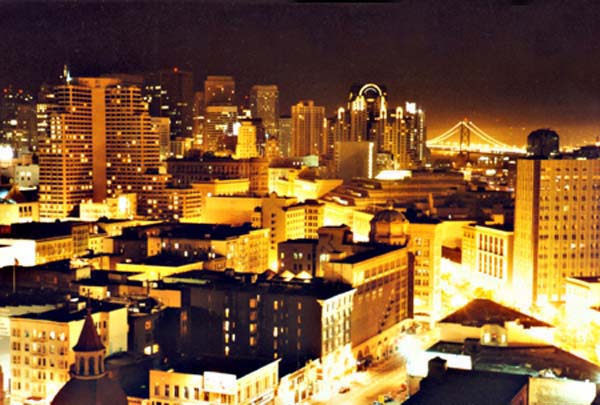
Junky I: San Francisco
Tyler Joseph Wiseman
Pop and flush,
the plunger rushes virtual escapisms
down veins to winnow a way
across all the aqueducts of anatomy
On rolls the night train
filled to the brim of it’s crystal prisms
with sanguine faces hollowed to pain
the very essence of being
Hunger without hunger
feeding only unto itself,
the needle tears asunder
an obvious vacuum in the soul
Junkie, you are horribly beautiful
![]()
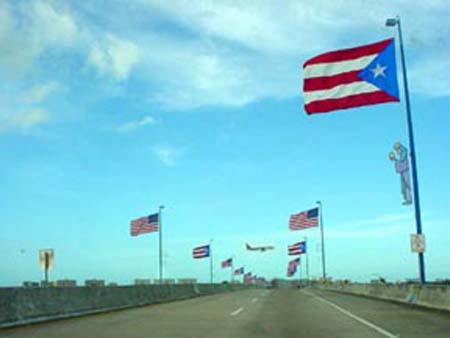
Plane FactoryChristopher Barnes, UK
Boeing’s ripped up the tides and times.
|

|
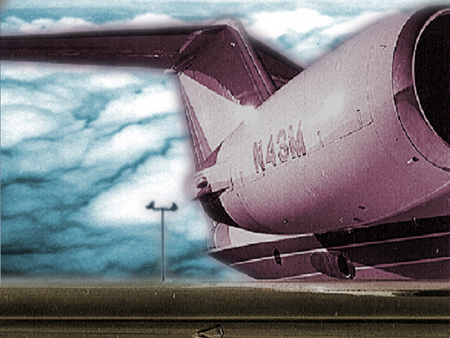
Idols
H. Berariu
Why must it come in a flash,
Like Christ on a cheap flyer?
Us Valley people need so much guidance.
Come pray at our paper church.
Faith is a heavy hand-bag
With nothing inside.
Between the rosaries that shimmy
From rear-view mirrors, and
Diagonal scrolls that litter doorways—
That’s when you seem to make
A grand entrance.
With deep forgiving eyes,
I don’t want to be one of
The many who want to save you.
You are as fake as an idea.
How dare you invade these households,
Burrowing into the minds that watch
The flickering television set in the dark.
We made you golden
You made us ungrateful.
Free will is mass produced,
And sold cheaply during your commercials.
I wish to tune in, and I beg
To tune out; flush your starburst twinkle
From out my eye so that I can blink
Without irritation.
I do not believe in your resurrection.
![]()

RAIN POEM
A. D. Winans
The storm
Lets up
The birds
Take flight
Neighbor’s dog
Shakes water
Drops in
Sprinkler fashion
A cavalry
Of children
Magically appear
In rainbow splendor
Sun peaks
From clouds
Smell of spring
In the air
![]()
Why I’m Not Religious
And Exasperated with Politics
Belinda Subraman
I’d like to talk about peace
but it’s only accepted
as personal reflection.
“Peace on earth”
is only appropriate
on cards
in December
while using God’s name
to prop up evil
seems to work well
all year long.
Bio 05/02/06
Belinda Subraman’s website is www.BelindaSubraman.com. She edits www.GypsyMag.com, featuring art, reviews, interviews, flash fiction, news in the literary arts and independent music scene and poetry. Her own poetry is appearing in print journals, online magazines and podcasts around the world. Listen to BZOO Radio, 24 hour streaming poetry and music at www.Bzoo.org, where Belinda is a contributing artist and show host for Gypsy Art Show and Music of the Universe. Her shows are available in podcast form at http://belinda_subraman.podomatic.com. A new CD called INDIA is available from www.Artvilla.com and itunes. Also, by day she is a hospice nurse.
![]()

Setting 02, art by Melanie Monterey
Detainee 445048y
Andrew Grossman
According to the wall clock
Which tells neither morning or night
But simply numbers on a face,
One minute in the vast conflict has passed
Since I tasted the saltiness of my blood.
One cannot know the source of the harsh light.
Shouts do resonate, bones do break
In the outer room where the guards play.
The pipe between my throat and the sky
Is running full with sparkling excrement.
Although we scrape the earth, the well is dry.
I shall awake from screaming to scream.
Bio:
Andrew Grossman’s poem, “The Efficient Nurses of Florida” was nominated for the Pushcart Prize. His work has been widely published and anthologized. Grossman’s new book is 100 Poems of the Iraqi Wars, comprised of work from the Middle East, Israel and the United States. He resides with his wife, Nancy Terrell, in Palm Beach, Florida.
![]()
prose
the meat and potatoes stuff
IT WAS ELVIS!
Gerald E. Sheagren
Tommy Bartucci kicked open the screen door with such force that it bounced off the side of the house. Cursing and muttering, he began to pace the front porch, picking up a rocking chair and flinging it onto the front lawn.
“Nadine, get out here, right now!”
“I don’t want to,” wailed a voice from inside the house.
“If you don’t get your butt out here, I’ll come in and drag you out!”
Seconds later, his sister appeared in the doorway; hair in disarray and blouse torn, a purplish-black mouse shrinking her right eye into a watery slit. She stood there, sobbing, her good eye unwilling to meet his glare.
“Let’s go, Nadine. We’re going to find the bastard that did this to you.”
“Please, Tommy; let the police take care of it.”
Tommy snorted a laugh. “You’ve got to be kidding me; the Keystone Kops in this town. They’ve couldn’t find a corpse in a closet.”
Their mother appeared, wrapping a pudgy arm around Nadine’s shoulder. “Enough of this big brother machismo. You remind me so much of your father.” Maria made a quick sign of the cross, kissing her fingers. “May God rest his soul.”
“I’m glad I remind you of Pop. He knew how to take care of things.”
“Old country traditions are long dead, Tommasso.”
Tommy barked a laugh, regarding his mother’s all-black attire. “You could have fooled me.” Opening the screen door, he grabbed Nadine’s arm and dragged her onto the porch. “Let’s go, sis. We’re going to cruise until we find this creep. And when we do, he’ll be sorry he was ever born.”
“I’ve been through enough, Tommy. Give me a break.”
Ignoring his mother’s pleas for restraint, Tommy led Nadine to his candy apple-red Camaro, opening the door and shoving her into the passenger’s seat. Hurrying around, he hopped behind the wheel and took a few moments to fume before firing up the engine. The vein in his temple was pulsating, looking much like a big fat worm squirming just below the skin.
“Okay, tell me again what this guy looked like.”
“How many times do I have to tell you? He looked just like Elvis.”
“C’mon, sis; how much could someone look like Elvis?”
“He could be his identical twin. He had black hair, all slick with some kind of goop, and combed — you know — just like Elvis use to comb his hair. And he had that cute pout. He was even wearing a white jumpsuit with ruby-red rhinestones.”
Tommy rolled his eyes in disbelief. “Jesus, Nadine. What kind of idiot goes around dressed in a white jumpsuit with rhinestones?”
“Piss on you!” Nadine reached for the door handle. “If you don’t believe me, let’s end this little vengeance quest right here and now.”
“Okay, okay, the King lives. If he’s still out there, he’ll be sticking out like a sore thumb.” Tommy stomped on the accelerator and the Camaro shot away from the curb with a long screech of rubber. “Once I’m finished with this dude and the cops scrape him off the sidewalk, he’ll be singing “The jailhouse Rock.”
“And you’ll probably be his cellmate.”
Tommy sped onto Main Street, down-shifting and weaving through traffic, ignoring the horns and shouts of the drivers he cut-off. He turned on the radio to soothe his nerves and wouldn’t you know it — “Love Me Tender.” The syrupy voice was more like chalk squeaking across a blackboard. Cursing, Tommy whacked the radio, shaking his hand and sucking the blood from a torn knuckle. Stuck behind a slow-moving delivery truck, he shot to the right, nearly broad-siding a school bus.
“Slow down, Tommy, please! What’s the sense in all of this if you get us both killed?”
“You just keep your eyes peeled for the jerk.”
“You mean ‘eye’. I happen to have only one good one at the moment.”
“Yeah, yeah, whatever. I can’t help you. I have to pay attention to traffic.”
“Oh, really? Is that what you’ve been doing?”
“Just remember one thing, Nadine; this whole thing is for you.”
Nadine barked a laugh. “Bull crap it is! This whole thing is for you and your precious big-brother ego. It’s for you, Tommy, and only you.”
“There’s plenty of chicks who wish they had a big brother like me — tons of them.”
“Oh, pleaseeee!”
Once they hit the center of the city the traffic became bumper-to-bumper, carbon monoxide thick on the humid air. It was a little past noon and the sidewalks were crammed with people rushing for a quick lunch. Horns blared. Engines revved impatiently. Nadine spotted a policeman and debated whether or not to hail him over and blurt out her whole terrible story.
“Have you seen him yet, Nadine?”
“If I did, I would have said something, no?”
“Maybe not if you want to avoid a scene.”
“I’ve already got a scene — right here in this car.”
And, then, as if summoned up by thought alone, she saw him! My God, what were the chances! There he was; this time wearing a shocking-pink jumpsuit, walking into the underground garage of the Park Sheraton. Should she say something, or keep her mouth shut? But it was too late. Tommy’s head whirled as he heard her suck in a startled breath.
“What, Nadine? Did you spot him?”
Silence.
“Nadine, for Christ-sake — did you see the creep?”
“Yes, damn-it-all — I saw him! He just walked into the garage of the Park Sheraton.”
Slamming on the brakes, Tommy shifted the Camaro into reverse and backed it between two oncoming cars, fishtailing and nearly striking a bumper. Then slamming on the brakes again, he jerked the wheel to the right and bullied his way in front of a panel truck, thudding over a speed bump as he zipped into the garage. With squealing rubber echoing off cement walls, he braked alongside the ticket dispenser. Growling with impatience, he yanked the ticket from the slot and nearly clipped the security arm when he tromped on the gas.
“Do you see him, do you see him?”
Nadine gave a long, weary sigh.
“Nadine, answer me! Do you see him?”
“Yeah, yeah, yeah, I see him, just disappearing around a corner. One more time, Tommy; forget about this macho nonsense and call the cops.”
“Not a chance in hell.”
Then as he cleared the first corner, he saw Elvis for the first time, walking around a vintage, nineteen-fifty-seven, pink Cadillac, looking for any dings or dents.
“Wow, look at that Caddy, Tommy.”
“Man, this creep goes whole hog.” Tommy pulled into an empty space and kept the motor running. “Okay, Nadine; you just wait, right here, while I take care of matters. It shouldn’t take long; the guy looks like a pushover.”
“Don’t hurt him too badly.”
“I can’t believe you. The bastard roughs you up during an attempted rape, and you want me to put on the Mickey Mouse gloves.”
Shaking Nadine’s hand from his arm, Tommy whipped open the door and jumped out. Man-oh-man; was he ever primed for this! He’d give the creep lefts and rights, uppercuts and roundhouses, even a good stomping when he went down. “Mercy” was not in his dictionary on this particular afternoon. Running on his toes to keep quiet, he quickly closed the gap between them.
“Hey, scum bucket!”
The man turned and stared, a brow raised in question. Oh, yeah, Elvis for sure! He had jet-black hair, shining with pomade and carefully combed into a pompadour. The pouting lips just like Nadine had said. And there was the jumpsuit; faggot-pink, this time, and encrusted with red rhinestones.
“Are you talking to me?” he asked in a syrupy Tennessee accent.
“Yeah, you pervert — I’m talking to you.”
“Did I hear you correctly?”
“What else would I call a lowlife who beats up on a seventeen-year-old girl? You didn’t quite get what you were after, did you?”
“I have no idea what you’re talking about. Obviously, you have me mixed up with someone else.”
Tommy brayed a laugh. “Oh, I don’t think there’s much room for that. So, now, you’re going to get a taste of your own medicine.”
“Just leave me alone or I call the police.”
“Yeah, sure.”
As the man slipped a key into the Caddy’s lock, Tommy dashed forward and grabbed hold of his arm. With surprisingly speed, Elvis whirled and launched a fist which he managed to duck under just in the nick of time. Zeroing in on a large rhinestone, Tommy delivered a punch to the creep’s midsection, then a knee to his chin as he doubled over, sending him reeling backwards. There was a thud as Elvis’s head hit the cement wall. With a groan, he slid to the ground, winding up in a sitting position with his chin resting on his chest.
Dancing from foot-to-foot, Tommy lashed at the air with a series of punches. “C’mon, shit-for-brains — you’re not going to get away this easy!”
The man didn’t move a muscle.
“Get the hell up! I’m going to clean your clock, pal!”
Still, the man failed to move.
A terrible thought crossed Tommy’s mind and he took a few hesitant steps forward, bending down and feeling for the pulse in Elvis’s wrist. Nothing! Impossible, totally impossible! He desperately moved his fingers from the wrist to the carotid artery in the man’s neck. Still nothing! And, only then, did he notice that the guy wasn’t breathing. Oh, Christ, no! It had happened so fast, in just a few lousy seconds!
Tommy scuttled across the cement floor on his hands and knees, peering out between the Caddy and a Mercedes. There wasn’t a soul in sight. Sweat trickled into his eyes, burning them, his heart feeling as though it were being squeezed by a giant fist. Leaping to his feet, he made a mad dash for his car, scrambling behind the wheel and slamming the door.
“Tommy, are you okay?”
“Yeah, yeah.”
“What happened? You’re as white as a ghost.”
“Nothing happened. I roughed the jerk up a little, that’s all.”
“There’s more to it than that. Tell me what really happened.”
“Nadine, please; just shut the hell up. I’ll tell you later, I promise.”
Squeezing the gearshift knob to steady his shaking hand, Tommy reversed and sped toward the exit, struggling to put on a nonchalant face for the attendant.
The old man squinted at the ticket. “You just got here by the looks.”
“Uh — yeah; I remembered that I had a prior engagement. You know; Alzheimer’s at twenty-two.”
“Well, be it one hour or one minute, it’ll cost you five bucks.”
Tommy fumbled out a five. His hand was shaking so badly that the old man had to reach for the bill three times before plucking it from his fingers.
“If you shake like that, I’d say it’s Alzheimer’s for sure.”
“Take it easy, Pops.”
“Yeah, you too.”
Would the old man be able to describe him if the police were to ask about any suspicious characters? If not, he would certainly remember a bright red Camaro. Tommy whipped onto the street without looking, nearly colliding with a taxi. He felt so dizzy he could hardly concentrate. He took one hand off the wheel at a time, wiping his sweaty palms on his jeans.
“C’mon, Tommy — what happened back there? You’re a bucket of nerves.”
“It’s nothing. I just never beat anyone up before.”
Suddenly, Nadine’s head snapped toward the sidewalk, her eyes growing as wide as saucers. “Wait a second! Wait, wait! It — It wasn’t that guy in the garage after all! That’s the real guy, over there!”
“What in the hell are you talking about?”
“Over there, Tommy! That’s the guy who attacked me!”
Tommy looked to where Nadine was pointing, spotting another Elvis. This one was decked out in a purple jumpsuit decorated with pink rhinestones!
“No, no, no, it’s not him either! Over there, coming out of that restaurant! That’s him — that’s him for sure!”
Tommy spotted yet another Elvis, slipping on sunglasses, dressed in a fifties-style sports jacket and blue jeans with the cuffs rolled up!
“What — What in the Christ is this; the frigging Twilight Zone!”
An, then, he caught sight of the sign in front of the Park Sheraton, groaning, and slamming on his brakes so suddenly that a police car smashed into his rear bumper.
There, for all to see – WELCOME ELVIS IMPERSONATORS OF THE WORLD!
![]()
Collision Courses
Ken Sieben
“Life’s a bitch and then you die,” Henry Ruhl’s daughter used to say whenever her luck turned sour, but he always observed that if her luck had just become bad, then it must recently have been good. Good things happen in life, he always insisted, often unexpectedly.
The most rewarding moment of Henry Ruhl’s forty-year career as an educator occurred six years before he retired—on a deserted street in downtown Newark, New Jersey, a half-hour before sunrise on a chilly October morning.
Henry normally commuted by train from the Riverton Station in Lenape County. The ride took forty minutes, during which he usually read the morning Star-Ledger and did the crossword puzzle. He found the trip relaxing. When he got off at Penn Station, he enjoyed a pleasant twenty-minute walk to the community college where he taught. If he’d had to drive the Garden State Parkway and the Jersey Turnpike every day, he probably would have retired many years earlier.
On that particular morning, Henry was doing a favor for a friend’s wife by escorting her to Penn Station where she would board a train to Chicago to visit her ailing mother. She was unaccustomed to travel and had never used public transportation. Besides, her husband didn’t want her alone in the city so early. To make her connection, they had to catch the 4:05 a.m. local instead of Henry’s usual 7:05 express. Henry put his friend’s wife and her suitcase in the competent hands of an Amtrak Conductor at 5:15, then waved to her as the train pulled out of the station.
After a much-needed stop at the Men’s Room, Henry left the station and headed west on Raymond Boulevard just as dawn was breaking. On other mornings he walked in the company of dozens, maybe hundreds, of briefcase-carrying men and women on their way to the banks, insurance companies, and financial- and social-service offices where they were employed. Occasionally, he would run into other teachers, both from his college and the neighboring institutions of higher learning clustered together in University Heights. Some had come on other commuter trains from the south or west, many on the PATH from Manhattan.
But that morning Henry didn’t see another person on the streets. It was eerie despite the fact that he’d known what to expect. Offices opened at eight and college classes started at 8:30, so no-one had reason to be on the streets at such an early hour. He did see a limo pulling into the Prudential garage and a near-empty bus heading north on Broad Street, but he did not see another pedestrian until he was two blocks from the college. It was a narrow street between an empty un-attended parking lot and a parking garage whose only sign of anticipated use was a green light at the entrance. Henry had just turned onto the street when he spotted a man on the other side walking in the opposite direction. The man must have spotted Henry, too, because moments later he stepped off the curb and changed his direction so that their paths would intersect within, Henry quickly calculated, about thirty seconds.
Thirty-four years earlier, Henry had had a similar encounter. He was walking west on Market Street where the sidewalk is a good fifteen feet wide. He was a little earlier than usual and, while there were other people walking, it was not at all crowded. A slightly-built young Hispanic man whom Henry probably outweighed by thirty-five pounds was walking east near the curb while Henry was heading west near the storefronts. Suddenly their eyes caught and the young man made a forty-five degree change in direction, towards Henry, putting them on a collision course. Henry kept on his own course, walking at his usual rapid pace and swinging his brown leather briefcase. As they grew closer, Henry saw a dazed look in the young man’s eyes and thought he was staggering a bit unsteadily—either drunk or spaced out on something, probably looking for a handout. Henry was younger and shorter than most other pedestrians, so he assumed the man had decided he would be an easier mark. Henry continued to maintain course and pace. Just as they were about to collide, he said sharply, “I’m not stopping.” The man slowed down but walked right into Henry, and fell to the ground. “Sorry, Mister,” he mumbled, “I wasn’t watching where I was going.” Henry continued without looking back. No-one else took notice.
But now, as the new man came closer, Henry realized how big he was. This time he knew a collision would send him crashing to the ground. The man, who Henry could now see was black and probably around thirty, wore a watch cap on his head and a long dark jacket with the collar turned up to protect his neck from the wind and walked with his hands in his jacket pockets. Henry felt threatened, moreso as the man grew closer and bigger. The man could have continued on his own side of the street, but his choice not to, instead to force a close passing between the two, compelled Henry to think he was either after a handout or, worse, his wallet. He decided on the former when, about five feet away, the man removed his right hand from his pocket. It was empty, so he wasn’t armed. Henry at least had his aging briefcase to swing.
Then the man smiled broadly, extended his hand in greeting, and said, in a familiar deeply resonant voice, “Thank you, Dr. Ruhl. Thank you for busting my ass over subject-verb agreement and all those other grammar rules.”
Henry was flabbergasted, a word which he’d read in old books and written in crosswords but never used until he told the story to a few colleagues two hours later over coffee. “You’re very welcome, of course,” Henry answered, shaking the man’s huge hand with his little one until the man pulled him close enough for a hug. “I recognize your voice and face, but I’m sorry to say I can’t yet attach a name to them.”
“Houston Thornton.” Immediately, Henry could visualize the name in his grade book along with fifteen others in a remedial English class from six or seven years before. Henry remembered agonizing over the decision to pass him and also wishing he could have had him for another semester to be certain he was ready.
“You know,” Houston said, “as soon as I spotted you, I thought it was fate, because I’d been thinking a lot about you since the semester started.” Was he still in college? Henry thought. “As I got closer,” Houston continued, “I was almost positive it was you. You have a distinctive walk.”
“I wondered why you were crossing the street,” Henry said.
“Sorry if I scared you. I was just so glad to see you that I didn’t realize what the scene must have looked like to you.”
Henry’s watch said 5:42. The sun would be up over the ocean in thirty minutes, though it couldn’t be seen above the city architecture for another twenty. “I had to deliver a friend for an early train ride,” he said, “and I can always use an extra two hours to correct papers. What’s your excuse for being outside so early?”
“I’m on my way to work. I teach at the alternative high school three blocks from here. We just got delivery on some used computers from Central and I wanted to get in early to install them. The funny thing is, I said I’d been thinking about you because I remembered how you used to make me—and all the others, I guess—revise our papers over and over and over again. As soon as I get my lab set up, I’m gonna start doing the same thing—you know, bust ass until the kids do it right.”
Henry could hardly believe what he was hearing. “Listen,” he said, “I’m glad we ran into each other. It’s always good for teachers to learn that their students made something of themselves. Teaching writing is hard work, and I wish you well. As you can see from our chance meeting, it can also be very satisfying. I have a new section of remedials that will enjoy hearing about you today. You started where they are, and now you’re teaching English. That’s really a great success story.”
Houston hesitated, but Henry sensed he had more to say. “Well, just don’t get soft, Doc. Stick to your principles. You gave me a C, but it was the last C I ever had. When I got to English 101 and 102, my professors were impressed. I made very few mistakes in grammar and mechanics, so they could work with me on organization, development, and vocabulary. You might not believe this, but I got a straight-Aat Rutgers, and now I’m half way through a master’s degree.”
Wow! Henry thought. “Of course I believe you. Once you had mastered the fundamentals, the rest came easily. I’ve been preaching that for years.”
Houston Thornton extended his hand once more and said, “Thanks again, Dr. Ruhl. It’s been a pleasure talking to you. I’ve been lucky enough to have had some good teachers, but you were the best.”
“Thank you,” Henry said, counting his blessings and looking forward to busting ass that day. Maybe he had been getting soft.
![]()
(part two of)
THE DRIVE
Kenneth DiMaggio
“Well, come on now. Be fair. What you’re doing, that thing you’re doing there—“
She stopped and turned to me and sarcastically said:
“Frolicing?”
“Yeah, it’s really different.”
She shook her head and resumed walking.
“Wait a minute, where ya going. Don’t go that way.”
I started to pursue her.
“It’s—dangerous. There’s—fraternities, shopping malls—there’s even a Gap clothing store that way.”
She stopped and giggled.
“Come on, I can give you a ride down. I’m sure you’ve seen me around; heard me read my poetry at The Boiler Room. That’s how I hooked up with your friends.”
“Some nice images but too much that is long-winded and could be cut.”
“Whattiya talking about? My poetry doesn’t need to be cut. It’s fine the way it is.”
“Every writer says that,” she said.
“Well, sometime you have to graduate from reading comic books,” I murmered.
“What’s that?” she said; a bit mad too. For she did not like being teased or “one-upped.”
“Come on. Let’s explore a little bit of Holy Land first.”
“I can’t,” she said. “I have to go to class.”
“What are you in high school?” I asked.
“College!”
“Freshman?”
“Why!”
“Because no one except a freshman goes to class on Friday mornings, and even freshmen stop going after the first few weeks of their fall semester.”
And this was spring. Late April. Second semester. She should know better. In the meantime, I gave myself a mental pat on the back for remembering something about college.
“It’s a class in my major, and my professor’s already pissed at me on account of my last project. He said my coffins fell flat in terms of dynamics and composition.”
“I hopeÉyou’re an art major?”
She look down and shyly said:
“Art, or Art EducationÉ”
To her parents, the latter; the only way you’re going to convince your folks to fund something that smacked to them of impracticality. If she went to the local state college, it would be the only way for her to study Art. The institutions in this area also reflected the same Bungalow-void view of professions or majors that did not quite fit into a cubicle; therefore, a study like Art required a practical appendage to it like “education”. That should not kill the study; if anything, it should enhance it, make it more exciting. Yeah, right—if in case you don’t catch the sarcasm. And now look at the lives of many of your great artists. They were some of the biggest degenerates and drug addicts going. Look at some of your art movements like Dada. Hugo Ball dressed like an Intergalatic clown and recited poetry that sounded like infantile Tourette’s Syndrome gibberish. (Okay, I believe he later became a devout Catholic; well, at least he prepared himself well with the earlier Dada gibberish.) Unfortunately, the local school boards have a Crayola crayon mentality when it comes to Art; some of the state’s upscale suburbs may fare better: they can finance class trips to see an impressionist show at a major museum like the Metropolitan Museum of Art. Institutions like the Met become a sign of breeding class distinctions, like horseback riding. Well, pass me the can of Krylon metal flake spray paint. Or better yet, a crowbar, bat, or sharp or blunt object that would make a cool object to cause pretty serious vandalism and even damage on one of your more major corrupt institutions like a church or state college, specifically a teacher training college.
But making miniature coffins sounds like a nice idea for an art project.
“Your teacher sounds like a moron.”
“He’s really not,” she said. “When it came time to display my project for the stupid art show, my tiny coffins looked more like a town green nativity scene. But with Barbie and Ken dolls. That’s how I portrayed of the moribund American nuclear family.”
“Well, you can always look at it as a work in progress.”
“Yeah, I suppose. But my professor is still right. A lot of my work is too static. I need to be more organic. So even if I don’t go to class, I need to find several pieces of organic material to go into my end of semester project.”
“I can help you there,” I said. “I know where to find a lot of things that are decaying. Anything that rots has to be organic.”
Her arm were now unlocked. They also partially disappeared within the scarves and I suppose pockets of her dress. She slightly shrugged her shoulders and said with little commitment:
“I guess. We can at least look through Holy Land. There’s got to be something organic here, and I could use a ride back to school.”
I smiled.
“Whatever you say.”
She bit her lip, and looked at me with squinty eyes.
“What about you!” she said. “Don’t you have a job or something?”
“Well—sometimesÉ” I said.
She continued her glowering; demanding more of an answer.
“I’m a substitute teacher .”
Pause.
“But they did not call me today.”
Pause again. Her glower still burning.
“Well, how could they?”
I gestured with my chin towards the car.
“I have a cell phone—but it’s somewhere in the back seat.”
![]()
performance art
Beach Poets Feature 08/14/05 Reading at Loyola Beach
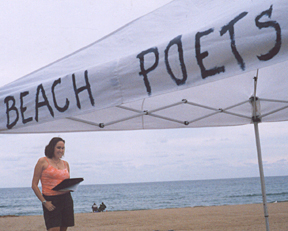
Burn It In
Once I was at a beachoff the west coast of Florida
it was New Year’s eve
and the yellow moon hung over the gulf
like a swaying lantern.
And I was watching the waves crash in front of me
with a friend
and the wind picked up
and my friend just stared at that moon for a while
and then closed his eyes.
I asked him what he was thinking.
He said, “I wanted to look at this scene,
and memorize it, burn it into my brain,
record it in my mind, so I can call it up when I want to.
So I can have it with me always.”
I too have my recorders.
I burn these things into my brain,
I burn these things onto pages.
I pick and choose what needs to be said,
what needs to be remembered.
Every year, at the end of the year
I used to write in a journal
recall the things that happened to me
log in all of the memories I needed to keep
because that was what kept me sane
that was what kept me alive.
When I first went to college
I was studying to be a computer science
engineer, I wanted to make a lot of money
I wanted to beat everyone else
because burned in my brain were the taunts
of kids who were in cliques
so others could do the thinking for them
because burned in my brain were the evenings
of the high school dances I never went to
because burned in my brain were the people
I knew I was better than
who thought they were better than me.
Well, yes, I wanted to make a lot of money
I wanted to beat everyone else
but I hated what I was doing
I hated what I saw around me
hated all the pain people put each other through
and all of these memories just kept flooding me
so in my spare time
to keep me sane, to keep me alive
I wrote down the things I could not say
that was how I recorded things.
When I looked around me, and saw friends
raping my friends
I wrote, I burned into these nightmares with a pen
and yes, I have this recorded
I have all of this recorded.
What did you think I was doing
when I was stuffing hand-written notes into my pockets
or typing long hours into the night?
In college, I had two roommates
who in their spare time would watch movies in our living room
and cross-stitch. I never understood this.
In my spare time, I was not watching other’s stories
or weaving thread to keep my hands busy
I was sitting in the corner of a cafe
scribbling into my notebook.
I was sitting in the university computer lab
slamming my hands, my fingers against the keyboard
because there were too many atrocities in the world
too many injustices that I had witnessed
too many people who had wronged me
and I had a lot of work to do.
There had to be a record of what you’ve done.
Did you think your crimes would go unpunished?
And did you think that you could come back, years later,
slap me on the back with a friendly hello
and think I wouldn’t remember?
You see, that’s what I have my poems for
so there will always be a record
of what you have done
I have defiled many pages
in your honor, you who swung
your battle ax high above your head
and thought no one would remember in the end.
Well, I made a point to remember.
Yes, I have defiled many pages
and have you defiled many women?
You, the man who rapes my friends?
You, the man who rapes my sisters?
You, the man who rapes me?
Is this what makes you a strong man?
you want to know why I do the things I do
I had to record these things
that is what kept me together
when people were dying
that is what kept me together
when my friends went off to war
that is what kept me together
when my friends were raped
and left for dead
that is what kept me together
when no one bothered to notice this
or change this
or care about this
these recordings kept me together
I need to record these things
to remind myself
of where I came from
I need to record these things
to remind myself
that there are things to value
and things to hate
I need to record these things
to remind myself
that there are things worth fighting for
worth dying for
I need to record these things
to remind myself
that I am alive
![]()
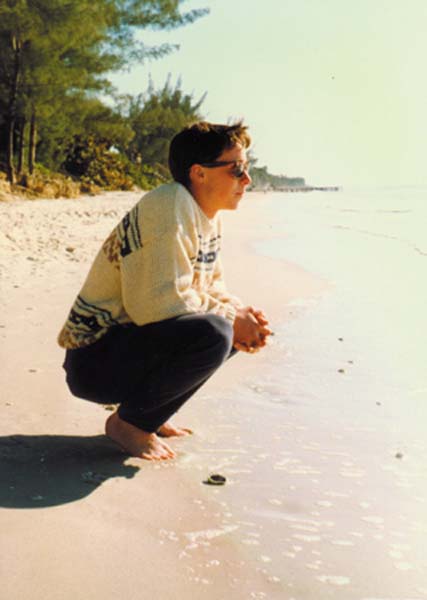
David
When I know you’re not going out anywhere in the morning,I get dressed, brew some flavored coffee, put it
in a thermos, and bring my book
to that hut on the corner of San Lu Rue Avenue.
The coffee tastes good when the Florida air
is just chilly enough to open your eyes.
I sit there, and I write, usually about
you, and I wait.
I know you’re a late riser, but
within a half hour you’re there.
Empty mug in one hand, drawing book and pencils
in the other. Cigarettes in pocket.
You look tired. But I’m awake.
I used to fear for your life, you know, when you were messed up with the drugs, the gangs. I’d sit up nights wondering why you didn’t call. I’d wonder if you were dead. I’d wonder if you were beaten up, bleeding on a subway, trying to hold your ribs in place. It hurt to care from five hundred miles away, for someone who couldn’t care for himself.
I’m glad that you straightened yourself out. Or I’m glad you almost did.
I remember being in your car, driving back from Tiger Tail beach. My skin felt itchy from the salt. My feet were sticking out the window, pressed against the rear-view mirror. I think you were holding my hand.
This was after you told me you wanted me to marry you. You never asked me to marry you, but you told me that’s what you wanted. I should have expected that from you. But you always surprised me.
I remember thinking that we could never get along for any reasonable length of time. You didn’t want to leave Canada; I didn’t want to leave the States. You wanted to backpack around Europe; I wanted to get a job, an apartment, some security. Vacationing at the tip of this peninsula seemed to be the only way we could meet.
But even though my skin hissed from the salt and the sun, in that car with you I felt like we could go anywhere.
I looked in my purse today
and found a box of Swan Vestas matches. You bought them
at the tobacco shop in the mall in Naples.
You asked me to hold the box for you.
I couldn’t understand why you bothered to buy matches
when you could get matchbooks anywhere, but
I must admit that you looked good when you lit one of them.
The box was so big. No American would want
a matchbox that big.
You always struck the match to the box three times
before it would light.
You made the art of lighting a match
seem like a pleasure.
I always liked the smell of sulphur.
I’m glad you forgot that box in my purse.
![]()
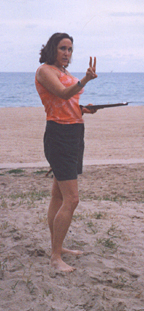
I Dreamt About You Last Night
“I dreamt about you last nightand I fell out of bed twice
you can pin and mount me
like a butterfly”
I dreamt about you last night.
I called you on the phone
even though you passed away
over four weeks ago now.
I don’t know why I called, I
don’t know what I was hoping for,
but when you answered your phone
I said, “Dave?”
You said, “Yes.”
And I asked, “How are you?”
You said, “Fine.”
And I asked, “You’re not dead?”
You said, “No.”
“But I just told someone
you passed away a month ago.”
“Oh,” you said, “Don’t worry.
I’ll take care of it.”
And you sounded so -
so relaxed. So peaceful.
They say that dreams are your
chance to think over the things
unresolved from your day. And
I keep dreaming about you.
Don’t I think about you enough?
You’re the one that left me.
Why are you coming back,
at night, when I let my defenses
down, slipping in through my
window and working your way
into my dreams?
I dreamt about you last night.
We were sitting together,
about to go out for the evening.
You were wearing a black
t-shirt and black jeans.
We were running late, and you
were angry. “I wanted to wear
this, but I wanted to put more
black on - I wanted to wear my
black vest and my black jacket.”
You know, I thought it was
always funny, how much you cared
about the clothes you wore.
So I said, “But Dave, you look
fantastic in your jeans and
t-shirt.” And you smiled at me
and kissed me.
I wish I could have told you
more in life how good you looked.
I’m sorry, Dave. I’m so sorry.
I wish in life I could have told
you the things you wanted to hear.
I saw you today. You were in a
black car and you were wearing
dark sunglasses. He could have
been you, if I closed my eyes
and squinted just slightly. You pulled
up in the lane next to me as I
was driving to my sister’s house.
You were about to turn right and
I watched you look at the oncoming
traffic, waiting for your chance to
leave me again.
Let me think that it was you,
driving, living. Let me think that
you’re just ignoring me. Then
I can be angry with you.
I dreamt about you last night.
I was on a cruise ship, and you
were working as a waiter. You wore
one of those silly short jackets
for your uniform. It was a sea blue.
And every time I thought I saw you
you would turn away to do your
job. All I ever caught were fleeting
glimpses of you, walking away.
All I keep thinking is that
my days are finally free of you
but they’re not. I keep thinking
of you. And it isn’t enough.
I still can’t escape you at night.
![]()
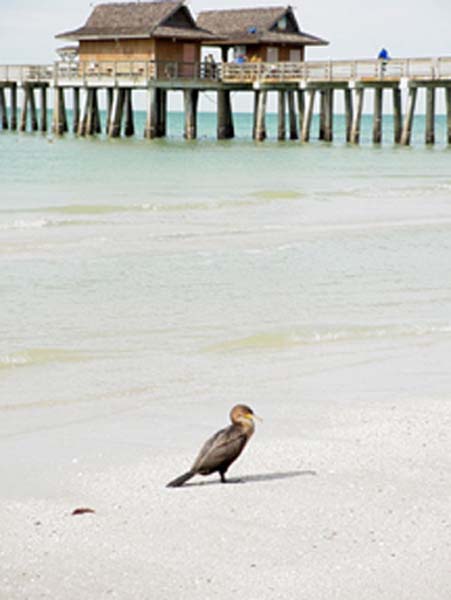
Coquinas
1
I can’t imagine
the number of times
I’ve been there
visiting Florida,
Christmas with my parents
a plastic tree
decorated
with sand dollars
and red
ribbons
eating Christmas dinner
listening to Johnny Mathis
and after the Irish coffee,
father with his brandy snifter
in hand
mother and the other
girls
putting away the dishes
the carolers would come,
walking in front of our home
singing “We wish you a
merry Christmas”
over and over again
we would walk outside
and the cool breeze
almost felt like Christmas
after the hot
![]() humid days
humid days
and we would stand on our driveway
smile and nod
you could see down the road
all the candles in
paper bags
lining the street
and for a few lights
the bag
burned
2
and we would take
boat rides
off the coast
my parents and their friends
to a tiny island
dad drinking beer
sometimes steering the boat
control
the women sitting together in the shade
worrying about their hair
i would sit at the front
sunglasses, swimsuit and sunburn
feeling the wind
slapping me
![]() in the face
in the face
and turning my head away from the boat
into the wind
away from them
to face it again
docking at a shoreline
everyone jumping out
little bags in their hands
the women go looking for shells
the men go barbecue
after an hour or two
the sandwiches, potato chips eaten
the soda and beer almost
gone
we turn around
and head back
we have conquered
3
and I remember
the coquinas
the little shells
you could find them alive
on the beaches north of the pier in
Naples
going to the beach
I would look for a spot
to find them
they were all my own
they burrowed their way into the
sand
to avoid the light
worming their way away from me
I unearthed a group of coquinas once,
fascinated with their color of
their shells, the way
they moved
before they could hide
I collected them
in a jar,
took them home with me
what did you teach me
what have you taught me to do
is this it
is this what it has become
is this what has become of me
of you of us
and I took them home
I added salt water and sand
but I couldn’t feed them
I realized soon that they
would die
so I let them
![]()
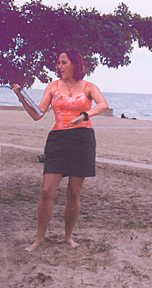
a child in the park
this was no ordinary park, mind you: therewere no swings or children laughing; there were
different children there. There was recreation:
tennis, the pool, and a maze of streets for bicycles
and long walks; surrounded by rows of prefabricated
homes each with one little palm tree by the driveway.
People drove golf carts around in the park, or large
tricycles, or older couples would walk together just as
it was beginning to turn to dusk and long shadows from
tree-tops cris-crossed over the streets. In the afternoons,
the women in the pool would wear hats and sunglasses,
lean against the sides, swing legs in the warm water.
I remember the summer afternoons when it rained in
Florida, and after the rain I would go out in the puddles
in my roller skates, skate through them, feet soaking wet.
There was even a street named after me in the park,
and at the end of Jan Drive there was a pond.
I spent hours there, playing imaginary games,
pretending I was grown-up, feeding the ducks,
watching the fish swim around the rocks at my
feet, looking for the turtles, listening to the wind.
Oh, I remember Mr. Whorall, how he would walk
onto his driveway every time I was playing tennis
across the street. He would watch me, tell me how
I was getting better at the game every time he saw me.
And there was also Mrs. Rogers, who lived up the
street from me. She saw me riding my bicycle by one day
just before Halloween. She invited me in to help
carve a pumpkin. Every year she bought me a Christmas
present. The sweetest woman. The most beautiful woman.
And there was Ira and Betty Wiggins, who lived on
the next street, Sand Drive, with a sign in front of
their house that said, “The Wiggins’ Wigwam.”
They had a hammock on their porch, and art so
beautiful, so colorful on their walls. They lived in
Panama for years, he used to be a doctor. So
many things collected from all their travel. They both
knew so much, they both loved life. Once they saw
me and asked if I wanted to catch a lion. They then
went to the side of the road, and with a spoon pulled
an ant lion from the top of a sand hill. So many secrets.
Every night Ira could be found with cue holder,
decorated with Panamanian art, at the pool table, playing
my father, or another man who died years ago. I remember
that man telling me that when I was younger he would
watch me on Easter Sunday, me in my pastel dress, by
myself, spinning, dancing in the streets. He remembered
me dancing. This is his memory, how he thought of me.
And I remember the McKinleys, Pete and Lindy, another
beautiful pair who talked of Mexico, of all the places
they’d gone, all the things they had seen. So many times I
would visit them just to hear them talk. And Pete would try
to stump me with an intellectual riddle every time I sat with
him; he would ask me about astronomy, what I had learned in my
classes since the last time I visited the park. Sometimes they
would take me to their country club, play on tennis courts made
of clay, how strange it felt on my feet through my tennis shoes.
It was like another world there. The park was
where I spent my Christmases, my Easters. I
remember swimming in the pool, a week shy of
thirteen, when my parents told me I was an aunt.
Now I talk to my sister on the phone, she asks me
if I remember so-and-so from Palos Avenue,
from Blue Skys Drive. The couple that had the ornate
rock garden in their front yard, or the snow shovel
against their light post with the words “rust in
peace” painted in white on the metal. Yes, I say, I
remember them. Well, so-and-so passed away last week,
she says. Heart attack. This is what it comes down
to, I think, all these memories are slowly disappearing.
So many memories. Where there are palm trees everywhere.
It was my other world, my other life, another
lifestyle, another everything. This was not an ordinary
park, but the children were so much smarter, and
still so full of life. So much to teach. So little time.
![]()

Freedom just past the Fence
After working for the Armyfor years on repairing jet engines
I ended up being stationed
in Pennsylvania one summer
repairing air conditioners
and refrigerators.
I’d only do a little work
and then have nothing to do
for a day or two.
But the thing I remember
is that at the time Cubans
were defecting to the United States
by boat.
They’d sail to Florida,
most of then dehydrated
and all of them malnourished.
The U.S. government
didn’t want them spreading diseases
in our country,
so when the Cubans would appear
off the coast of Miami,
the military would be waiting
to make sure they were healthy.
Well, all I knew
was that they got all these Cubans
into trucks we called ‘cattle cars’
with only a few benches
and trucked them up to Pennsylvania,
 where I was,
where I was,and the military gave them some shots
to make sure they weren’t dying.
So these people, after
escaping their country
in a shoddy wooden boat
were taken by the U.S. military,
herded into a boxed-in truck
and shipped up the country
so they could be given shots
and detained.
These Cubans,
who came here wanting freedom,
now had to wait
in a fenced-in area
until they were tested
and given food.
And it was my job
to make sure that
their fridge and
air conditioner was working.
So I sat there for
a day or two at a time,
drinking cans of beer,
and looking out my window.
I had a view of the razor wire fence
and all I remember
was seeing all of these Cubans
leaning on the chain-link fence,
wondering if this was what it was like
to be free,
holding on to the metal,
looking out to what they were sure
was freedom.
![]()
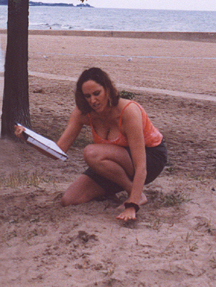
in the air
Part One
Over Las Vegas with my family, my sister
and myself in one row, my parents in the
other across the way. We’re nearing the end
of our flight; mother tells me to sit in her
seat and look out the window as we fly
over the Hoover dam. Sitting next to father,
I watch him lean out the window saying,
just think of all that concrete.
I look over his shoulder, the dam
no larger than a thumbnail, the water,
like cracks in a sidewalk, like the
wrinkles in the palm of my hand.
Over Phoenix, preparing for another
descent at 8:50 p.m., but it’s usually fifteen
minutes late, as it is now, I’m getting
used to the schedule now. The mountains look
like the little mountains you see on
topographically correct globes, little ridges,
as if they’re made of sand, if you just lean
your head down a little bit, your exhaling
can make them all blow away in the
breeze. And I know that what I’m looking for
is out there, somewhere, I think this is
where it is, I better not be wrong, I just
have to search a little harder and find it.
I love the city lights from above at night.
Have you ever thought of how much power
it takes to light all those buildings?
All that energy. And every time I look,
look out that little window with rounded corners,
i see a string of yellow Italian Christmas
lights strung across the ground.
And little Champaign, Illinois, and
those little airplanes that 25 people
fit in. The airport there is really nice,
actually, it’s made for a bigger city, a city
of dreams and tall buildings, that’s what I
think. The roar of the planes are so loud, though,
not like those 747’s where you can sleep
during the flight. But they fly low enough
so that I can see the building I live in
from the sky. And where I work. There’s the
store. Neil Street. Assembly Hall. The bars.
Over Fort Myers, the city always looks
different from any other place, all those
palm trees, the marshes. Like you’ve just
landed somewhere foreign, and pretty soon
the big tour will begin. You can feel the
heat, the humidity sticking your shirt to
your back between your shoulder blades,
and your neck, sticking to your neck too,
from inside your cabin, before you even land.
Chicago looks grand from the sky
with this huge expanse of lake
next to it, like civilization crept up
as far as it could but finally had to stop.
The power of nature stopping the power
of man kind, for once. And I cannot
decide which one looks more evil.
The lake does, looks evil i mean, at least
at night, at night it looks like two spheres:
a string of lights and a huge void. Daylight,
and the snow on the ground looks dirty, too
many cars have splashed mud on it as they
drove by. And the sky always matches the
shade of grey of the snow: fitting for the
city of the Blues. Maybe the snow is already
that color, that perfect shade of grey,
when it falls from the sky in this city.
Part Two
Have you ever noticed that the air
isn’t normal air in an airplane? I mean,
I know they have to pump in the air,
and pressurize it and all in order to
keep us alive up there, but there’s just
something about the air in the cabin
that’s different. It’s got a smell to it,
that’s the only way I can describe it.
A smell of all these people, going
places, running to something, or
running away from it.
When I go on vacation and I promise
people I’ll write, I usually write from the
plane, just so I don’t have to worry about
it for the rest of my trip. And I write their
letter on an airsick bag. It’s more
interesting than paper.
I like the window seat, I like to look
out the window. Clouds look like
cotton balls when you’re above them,
and when you’re landing cars look like
little ants, on a mission, bringing food
back to their hill. Little soldiers, back
and forth, back and forth. And the
streets look like veins, capillaries in some
massive, monstrous body. And the
farmland looks like little squares of colors.
I wonder why each plot of land is a
different color, what’s growing there
that makes them different. Or maybe it’s
that some of them are turning shades of red
and brown because some of them dying.
Once I was bumped from my flight,
but on the next available flight they gave
me first class. And I sat there, feeling
underdressed. And afraid to order a drink.
And it always seems that you’re stuck
sitting next to someone that is either
too wide for their seat, or is a businessman
with his newspaper stretched out
and his lap top computer on his little
fold out table. Once, when I was on a
flight back from D. C., a flight attendant
walked by, stack of magazines in her
hand, Time, Newsweek, Businessweek,
and I stopped her, asking what magazines
she had. And she replied, “Oh, these
magazines are for men.” This is a true
story. And I asked her again what she
had. I had already read Time, so I took
Newsweek.
![]()
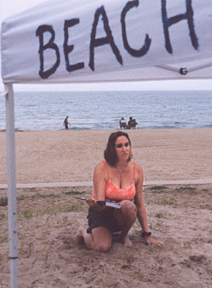
|
Age
Sometimes, when I get behind the wheel of a car, I feel like I’m at Six Flags Great America Amusement Park In Gurnee, Illinois again and I’m thirteen years old and I’m able to drive one of the bumper cars. And it’s such a thrill -- because, I mean, I’m thirteen years old and I can’t drive, and I’m now in control of this huge piece of machinery. Granted, there’s this wire sticking up from the car that gets electricity from the ceiling, but for once I feel free, that I can just go, go faster than I ever could by running, or even if I used my roller skates or my bicycle.
And when I get that feeling and I’m behind the wheel of my car I want to drive really really fast out on an abandoned road, blare some rock music, roll down my window, and turn up the heat, since it’s the middle of winter.
Sometimes, when I go out on a new date, I feel like I’m sixteen again, and I’ll rifle through my closet, deciding I have absolutely nothing to wear. And he’ll pick me up, and we’ll go to a restaurant with deer heads on the walls, and we’ll have whiskey sours, and we’ll struggle with the lettuce leaves in the salads because they’re too big, and when we’re done with dinner we’ll go to a bar that’s so crowded and so loud that we won’t be able to talk to each other, but we’ll have to stand real close. And then he’ll take me home and I’ll invite him in, he’ll sit on the chair, I’ll sit on the couch, and he’ll ask for a glass of water. When we can’t think of any more small talk, and the clock says 3:12 a.m., I’ll see him to the door, he’ll kiss me good-bye, and I’ll lock the door after he leaves. And when I’m sure he can’t see me through the window, I’ll turn on the stereo and dance in my living room before I go to bed.
 Sometimes, when I’m having sex with someone, I feel like I’ve done this for years, like I’ve been married to this man for twenty years, and I still don’t know him, but I’m still there, night after night. After the wedding, after the new house, which was a little small, but we’ll get something bigger when we have the money, after the two kids and the fifteen pounds, after I lose my job, after we don’t get that new house and after the kids complain about their curfews, after the dog dies, hell, it was only trouble for us anyway, after the sinus headaches, the back problems, that all-over sore feeling, you know, it’s harder to wake up in the mornings now, after it all he still has the nights, the sex with the woman he knows all too well but not at all, and we do it, as we always do. It becomes memorization. It becomes like a play, that I act out night after night.
Sometimes, when I’m having sex with someone, I feel like I’ve done this for years, like I’ve been married to this man for twenty years, and I still don’t know him, but I’m still there, night after night. After the wedding, after the new house, which was a little small, but we’ll get something bigger when we have the money, after the two kids and the fifteen pounds, after I lose my job, after we don’t get that new house and after the kids complain about their curfews, after the dog dies, hell, it was only trouble for us anyway, after the sinus headaches, the back problems, that all-over sore feeling, you know, it’s harder to wake up in the mornings now, after it all he still has the nights, the sex with the woman he knows all too well but not at all, and we do it, as we always do. It becomes memorization. It becomes like a play, that I act out night after night.
Sometimes, when I get home after 10 o’clock from working overtime on the computers, I just want to retire, to quit the work, to stop it all. I see my parents, after a life of working at the construction site and raising five children, now beginning to relax, buying a small home in Southwest Florida, playing tennis in the morning, playing cards in the afternoon, drinking with other retired couples in the evening. Sometimes another couple invites them out for a boat ride off of Marco Island, where they smoke cigarettes, drink a few beers, and drive slow enough to make no wake when they’re by the pier.
Sometimes I look at the computer screen I work at and remember how computers used to mean video games. I remember when I was eight and I would sit with my best friend in the upstairs den on the floor in front of the old television set and play table tennis on our Atari. Times change, I suppose, and I get old. This is my life.
![]()
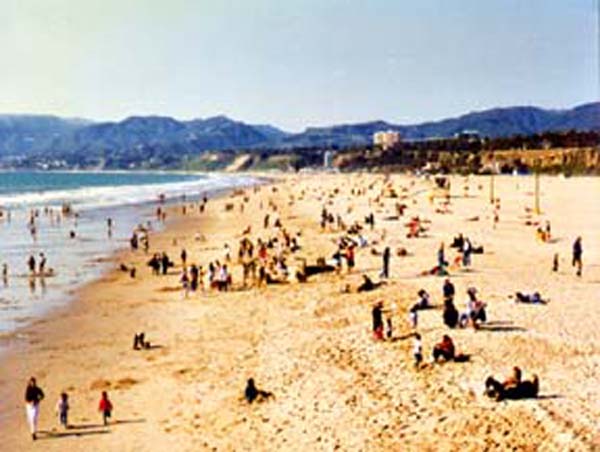
|
Clay
so I was at this bar, on the coast of florida -- the west coast, the gulf side, you know. it was this place called lana kai, and my friend gave me a ride all the way from naples, which is a good forty-five minutes south of the place.
and so we were sitting there at the bar, which is half indoors and half on the beach, and all these old men kept staring at my friend’s chest. a couple guys bought us beer and one guy asked me to dance. I was surprised he asked me to dance, and not my friend -- men were usually more attracted to her.
but the guys were jerks anyway -- one looked like a marine with that haircut and must have been high on something, one looked like he decided to forgo hygiene, another was twice my age. it’s not as if I try to pick up men in bars anyway.
so after a while I couldn’t stand being at the bar, next to the reggae band that was playing (I never really liked reggae music anyway, I mean, it’s too slow to dance to), so I begged my friend to come walk with me on the beach.
christ, I felt like a ten-year-old with a bucket and shovel when I kicked off my black suede shoes and ran into the water. I always loved the feel of sand when it’s drenched in water. it feels like clay as it seeps around my toes, pulling me into the ground.
so there I was, splashing in the water, wearing a black sequin dress, throwing my purse to the shore, taking a swig from my can of miller lite. this was life, I thought. pure and simple. an army couldn’t have dragged me out of the water.
so my friend found some guy to hit on, as she usually does, and she wanted me to hit on his friend. I found him ugly as all sin, and impossible to talk to. I told him that one of the rafts on the shore was mine, and instead of driving to the bar I sailed. and he believed me. I told my friend flat out that I wouldn’t go with him. she was pissed that I didn’t find him good-looking.
so then He strolled up from the bar to the beach, an intriguing stranger, and He walked up right next to me in the water, still wearing his shoes, seeming to know that I needed to be saved. as most knights in shining armor would.
and He said hello to me, and He started talking to me, and He cracked a few jokes, and He made me laugh.
and okay, I’ll admit it -- he was good-looking, really good looking. I remember at one point, looking at him made me think of a greek statue, He had this curly hair, this sharp chin, these strong cheek bones. but those greek statues could never talk to me, they have no color, they don’t come alive. they’re made of stone.
His name was Clay. and when we talked He crept into my pores, the way the sand made it’s way between my toes. His voice tunneled into me, boring me hollow, making me anxiously wait to be filled with more and more of His words.
 my friend disappeared with her new-found monosyllabic lover, for hours, until long after the bar closed, leaving me stranded. there I was, forty-five miles north of my home at 2:20 in the morning with no means of transportation. it could have been worse, I could have been somewhere other than on the beach, I could have been sober, and I might not have had a knight in shining armor named Clay to save me.
my friend disappeared with her new-found monosyllabic lover, for hours, until long after the bar closed, leaving me stranded. there I was, forty-five miles north of my home at 2:20 in the morning with no means of transportation. it could have been worse, I could have been somewhere other than on the beach, I could have been sober, and I might not have had a knight in shining armor named Clay to save me.
and as He drove me home (an hour and a half out of his way), I couldn’t help but run my fingers through his hair, it was an uncontrollable impulse, like the urge to drag your fingers deep into the wet sand. I told Him I was just trying to keep Him awake for the drive.
it’s almost better if I never see Him again. then I can always think of Him this way.
![]()

|
Nick DiSpoldo, Small Press Review (on “Children, Churches and Daddies,& #148; April 1997)
Kuypers is the widely-published poet of particular perspectives and not a little existential rage, but she does not impose her personal or artistic agenda on her magazine. CC+D is a provocative potpourri of news stories, poetry, humor, art and the “dirty underwear& #148; of politics.
|
Debra Purdy Kong, writer, British Columbia, Canada
I like the magazine a lot. I like the spacious lay-out and the different coloured pages and the variety of writer’s styles. Too many literary magazines read as if everyone graduated from the same course. We need to collect more voices like these and send them everywhere.
|
Ed Hamilton, writer
#85 (of Children, Churches and Daddies) turned out well. I really enjoyed the humor section, especially the test score answers. And, the cup-holder story is hilarious. I’m not a big fan of poetry - since much of it is so hard to decipher - but I was impressed by the work here, which tends toward the straightforward and unpretentious.
|
Children, Churches and Daddies.
It speaks for itself.
Write to Scars Publications to submit poetry, prose and artwork to Children, Churches and Daddies literary magazine, or to inquire about having your own chapbook, and maybe a few reviews like these.
|
Jim Maddocks, GLASGOW, via the Internet I’ll be totally honest, of the material in Issue (either 83 or 86 of Children, Churches and Daddies) the only ones I really took to were Kuypers’. TRYING was so simple but most truths are, aren’t they?
|
what is veganism?
A vegan (VEE-gun) is someone who does not consume any animal products. While vegetarians avoid flesh foods, vegans don’t consume dairy or egg products, as well as animal products in clothing and other sources.
why veganism?
This cruelty-free lifestyle provides many benefits, to animals, the environment and to ourselves. The meat and dairy industry abuses billions of animals. Animal agriculture takes an enormous toll on the land. Consumtion of animal products has been linked to heart disease, colon and breast cancer, osteoporosis, diabetes and a host of other conditions.
so what is vegan action?
We can succeed in shifting agriculture away from factory farming, saving millions, or even billions of chickens, cows, pigs, sheep turkeys and other animals from cruelty.
We can free up land to restore to wilderness, pollute less water and air, reduce topsoil reosion, and prevent desertification.
We can improve the health and happiness of millions by preventing numerous occurrences od breast and prostate cancer, osteoporosis, and heart attacks, among other major health problems.
A vegan, cruelty-free lifestyle may be the most important step a person can take towards creatin a more just and compassionate society. Contact us for membership information, t-shirt sales or donations.
vegan action
po box 4353, berkeley, ca 94707-0353
510/704-4444
|
C Ra McGuirt, Editor, The Penny Dreadful Review (on Children, Churches and Daddies)
CC&D is obviously a labor of love ... I just have to smile when I go through it. (Janet Kuypers) uses her space and her poets to best effect, and the illos attest to her skill as a graphic artist.
|
Children, Churches and Daddies no longer distributes free contributor’s copies of issues. In order to receive issues of Children, Churches and Daddies, contact Janet Kuypers at the cc&d e-mail addres. Free electronic subscriptions are available via email. All you need to do is email ccandd@scars.tv... and ask to be added to the free cc+d electronic subscription mailing list. And you can still see issues every month at the Children, Churches and Daddies website, located at http://scars.tv
|
Mark Blickley, writer The precursor to the magazine title (Children, Churches and Daddies) is very moving. “Scars& #148; is also an excellent prose poem. I never really thought about scars as being a form of nostalgia. But in the poem it also represents courage and warmth. I look forward to finishing her book.
|
MIT Vegetarian Support Group (VSG)
functions:
* To show the MIT Food Service that there is a large community of vegetarians at MIT (and other health-conscious people) whom they are alienating with current menus, and to give positive suggestions for change.
* To exchange recipes and names of Boston area veg restaurants
* To provide a resource to people seeking communal vegetarian cooking
* To provide an option for vegetarian freshmen
We also have a discussion group for all issues related to vegetarianism, which currently has about 150 members, many of whom are outside the Boston area. The group is focusing more toward outreach and evolving from what it has been in years past. We welcome new members, as well as the opportunity to inform people about the benefits of vegetarianism, to our health, the environment, animal welfare, and a variety of other issues.
|
Gary, Editor, The Road Out of Town (on the Children, Churches and Daddies Web Site) I just checked out the site. It looks great.
|
Dusty Dog Reviews: These poems document a very complicated internal response to the feminine side of social existence. And as the book proceeds the poems become increasingly psychologically complex and, ultimately, fascinating and genuinely rewarding.
|
John Sweet, writer (on chapbook designs)
Visuals were awesome. They’ve got a nice enigmatic quality to them. Front cover reminds me of the Roman sculptures of angels from way back when. Loved the staggered tire lettering, too. Way cool.
(on “Hope Chest in the Attic& #148;)
|
Dusty Dog Reviews: She opens with a poem of her own devising, which has that wintry atmosphere demonstrated in the movie version of Boris Pasternak’s Doctor Zhivago. The atmosphere of wintry white and cold, gloriously murderous cold, stark raging cold, numbing and brutalizing cold, appears almost as a character who announces to his audience, “Wisdom occurs only after a laboriously magnificent disappointment.& #148; Alas, that our Dusty Dog for mat cannot do justice to Ms. Kuypers’ very personal layering of her poem across the page.
|
Cheryl Townsend, Editor, Impetus (on Children, Churches and Daddies) The new CC&D looks absolutely amazing. It’s a wonderful lay-out, looks really professional - all you need is the glossy pages. Truly impressive AND the calendar, too. Can’t wait to actually start reading all the stuff inside.. Wanted to just say, it looks good so far!!!
|
Fithian Press, Santa Barbara, CA
Indeed, there’s a healthy balance here between wit and dark vision, romance and reality, just as there’s a good balance between words and graphics. The work shows brave self-exploration, and serves as a reminder of mortality and the fragile beauty of friendship.
Mark Blickley, writer
The precursor to the magazine title (Children, Churches and Daddies) is very moving. “Scars& #148; is also an excellent prose poem. I never really thought about scars as being a form of nostalgia. But in the poem it also represents courage and warmth. I look forward to finishing her book.
You Have to be Published to be Appreciated.
Do you want to be heard? Contact Children, Churches and Daddies about book or chapbook publishing. These reviews can be yours. Scars Publications, attention J. Kuypers. We’re only an e-mail away. Write to us.
|
Brian B. Braddock, Writer (on 1996 Children, Churches and Daddies) I passed on a copy to my brother who is the director of the St. Camillus AIDS programs. We found (Children, Churches and Daddies’) obvious dedication along this line admirable.
|
The Center for Renewable Energy and Sustainable Technology
The Solar Energy Research & Education Foundation (SEREF), a non-profit organization based in Washington, D.C., established on Earth Day 1993 the Center for Renewable Energy and Sustainable Technology (CREST) as its central project. CREST’s three principal projects are to provide:
* on-site training and education workshops on the sustainable development interconnections of energy, economics and environment;
* on-line distance learning/training resources on CREST’s SOLSTICE computer, available from 144 countries through email and the Internet;
* on-disc training and educational resources through the use of interactive multimedia applications on CD-ROM computer discs - showcasing current achievements and future opportunities in sustainable energy development.
The CREST staff also does “on the road& #148; presentations, demonstrations, and workshops showcasing its activities and available resources.
For More Information Please Contact: Deborah Anderson
dja@crest.org or (202) 289-0061
|
Brian B. Braddock, Writer (on 1996 Children, Churches and Daddies) I passed on a copy to my brother who is the director of the St. Camillus AIDS programs. We found (Children, Churches and Daddies’) obvious dedication along this line admirable.
|
Dorrance Publishing Co., Pittsburgh, PA
“Hope Chest in the Attic& #148; captures the complexity of human nature and reveals startling yet profound discernments about the travesties that surge through the course of life. This collection of poetry, prose and artwork reflects sensitivity toward feminist issues concerning abuse, sexism and equality. It also probes the emotional torrent that people may experience as a reaction to the delicate topics of death, love and family.
“Chain Smoking& #148; depicts the emotional distress that afflicted a friend while he struggled to clarify his sexual ambiguity. Not only does this thought-provoking profile address the plight that homosexuals face in a homophobic society, it also characterizes the essence of friendship. “The room of the rape& #148; is a passionate representation of the suffering rape victims experience. Vivid descriptions, rich symbolism, and candid expressions paint a shocking portrait of victory over the gripping fear that consumes the soul after a painful exploitation.
want a review like this? contact scars about getting your own book published.
|
Paul Weinman, Writer (on 1996 Children, Churches and Daddies) Wonderful new direction (Children, Churches and Daddies has) taken - great articles, etc. (especially those on AIDS). Great stories - all sorts of hot info!
|
![]()

The magazine Children Churches and Daddies is Copyright ©
through
Scars Publications and Design. The rights of the individual pieces remain with the authors. No material may be reprinted without express permission from the author.
Okay, nilla wafer. Listen up and listen good. How to save your life. Submit, or I’ll have to kill you.
Okay, butt-munch. Tough guy. This is how to win the editors over.
Carlton Press, New York, NY: HOPE CHEST IN THE ATTIC is a collection of well-fashioned, often elegant poems and short prose that deals in many instances, with the most mysterious and awesome of human experiences: love... Janet Kuypers draws from a vast range of experiences and transforms thoughts into lyrical and succinct verse... Recommended as poetic fare that will titillate the palate in its imagery and imaginative creations.
You Have to be Published to be Appreciated.
Dorrance Publishing Co., Pittsburgh, PA: “Hope Chest in the Attic& #148; captures the complexity of human nature and reveals startling yet profound discernments about the travesties that surge through the course of life. This collection of poetry, prose and artwork reflects sensitivity toward feminist issues concerning abuse, sexism and equality. It also probes the emotional torrent that people may experience as a reaction to the delicate topics of death, love and family. “Chain Smoking& #148; depicts the emotional distress that afflicted a friend while he struggled to clarify his sexual ambiguity. Not only does this thought-provoking profile address the plight that homosexuals face in a homophobic society, it also characterizes the essence of friendship. “The room of the rape& #148; is a passionate representation of the suffering rape victims experience. Vivid descriptions, rich symbolism, and candid expressions paint a shocking portrait of victory over the gripping fear that consumes the soul after a painful exploitation.
Dusty Dog Reviews, CA (on knife): These poems document a very complicated internal response to the feminine side of social existence. And as the book proceeds the poems become increasingly psychologically complex and, ultimately, fascinating and genuinely rewarding.
Debra Purdy Kong, writer, British Columbia, Canada (on Children, Churches and Daddies): I like the magazine a lot. I like the spacious lay-out and the different coloured pages and the variety of writer’s styles. Too many literary magazines read as if everyone graduated from the same course. We need to collect more voices like these and send them everywhere.
ccandd96@scars.tv
Publishers/Designers Of
Sponsors Of
Children, Churches and Daddies (founded 1993)
has been written and researched by political groups and writers from the United States, Canada, England, India, Italy, Malta, Norway and Turkey.
Regular features provide coverage of environmental, political and social issues (via news and philosophy) as well as fiction and poetry,
and act as an information and education source. Children, Churches and Daddies is the leading magazine for this combination of information,
education and entertainment.

Okay, it’s this simple: send me published or unpublished poetry, prose or art work (do not send originals), along with a bio, to us - then sit around and wait... Pretty soon you’ll hear from the happy people at cc&d that says (a) Your work sucks, or (b) This is fancy crap, and we’re gonna print it. It’s that simple!
Hope Chest in the Attic is a 200 page, perfect-bound book of 13 years of poetry, prose and art by Janet Kuypers. It’s a really classy thing, if you know what I mean. We also have a few extra sopies of the 1999 book “Rinse and Repeat& #148;, the 2001 book “Survive and Thrive& #148;, the 2001 books “Torture and Triumph& #148; and “(no so) Warm and Fuzzy& #148;,
which all have issues of cc&d crammed into one book. And you can have either one of these things at just five bucks a pop if you just contact us and tell us you saw this ad space. It’s an offer you can’t refuse...
Mark Blickley, writer: The precursor to the magazine title (Children, Churches and Daddies) is very moving. “Scars& #148; is also an excellent prose poem. I never really thought about scars as being a form of nostalgia. But in the poem it also represents courage and warmth. I look forward to finishing the book.
Do you want to be heard? Contact Children, Churches and Daddies about book and chapbook publishing. These reviews can be yours. Scars Publications, attention J. Kuypers - you can write for yourself or you can write for an audience. It’s your call...
Children, Churches and Daddies. It speaks for itself.
Dusty Dog Reviews (on Without You): She open with a poem of her own devising, which has that wintry atmosphere demonstrated in the movie version of Boris Pasternak’s Doctor Zhivago. The atmosphere of wintry white and cold, gloriously murderous cold, stark raging cold, numbing and brutalizing cold, appears almost as a character who announces to his audience, “Wisdom occurs only after a laboriously magnificent disappointment.& #148; Alas, that our Dusty Dog for mat cannot do justice to Ms. Kuypers’ very personal layering of her poem across the page.
Children, Churches and Daddies. It speaks for itself.
Fithian Press, Santa Barbara, CA: Indeed, there’s a healthy balance here between wit and dark vision, romance and reality, just as there’s a good balance between words and graphics. The work shows brave self-exploration, and serves as a reminder of mortality and the fragile beauty of friendship.
the unreligious, non-family oriented literary and art magazine
Scars Publications and Design
http://scars.tv
Children, Churches and Daddies magazine
cc+d Ezines
The Burning mini poem books
God Eyes mini poem books
The Poetry Wall Calendar
The Poetry Box
The Poetry Sampler
Mom’s Favorite Vase Newsletters
Reverberate Music Magazine
Down In The Dirt magazine
Freedom and Strength Press forum
plus assorted chapbooks and books
music, poery compact discs
live performances of songs and readings
past editions:
Poetry Chapbook Contest, Poetry Book Contest
Prose Chapbook Contest, Prose Book Contest
Poetry Calendar Contest
current editions:
Editor’s Choice Award (writing and web sites)
Collection Volumes
Children, Churches and Daddies (ISSN 1068-5154) is published quarterly by Scars Publications and Design,
cations and Design. Contact us via e-mail (ccandd96@scars.tv)ian Court, Gurnee, IL 60031-3155 USA; attn: Janet Kuypers. Contact us via snail-mail or e-mail (ccandd96@scars.tv) for subscription rates
or prices for annual collection books.
To contributors:
No racist, sexist or blatantly homophobic material. No originals; if mailed, include SASE & bio.
Work sent on disks or through e-mail preferred. Previously published work accepted. Authors always retain rights to their own work. All magazine rights reserved. Reproduction of
Children, Churches and Daddies without publisher permission is forbidden.
Children, Churches and Daddies copyright
through
Scars Publications and Design, Children, Churches and Daddies, Janet Kuypers. All rights remain with the authors of the individual
pieces. No material may be reprinted without express permission.
